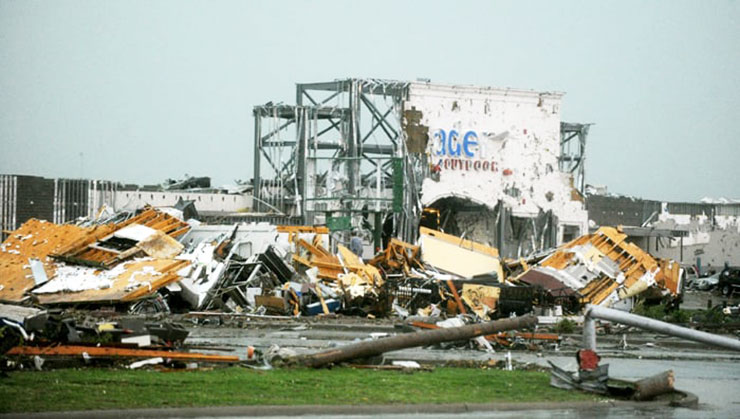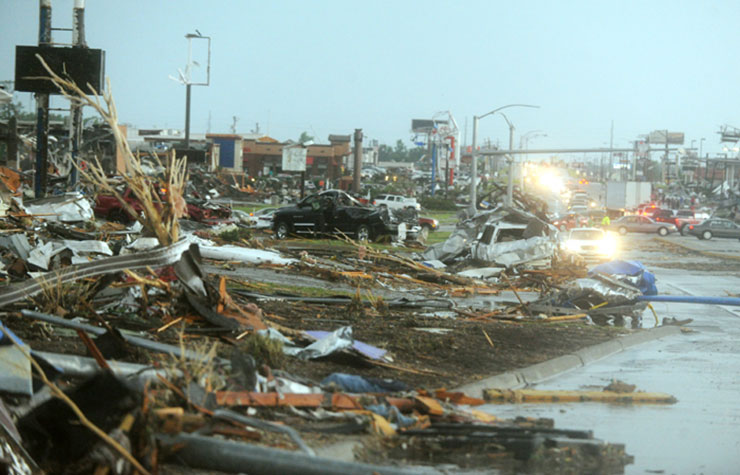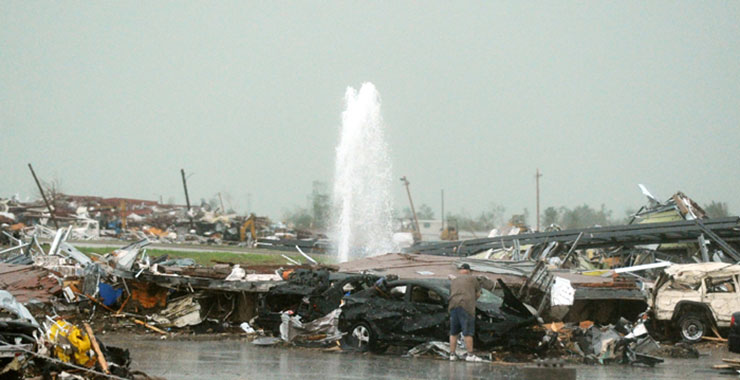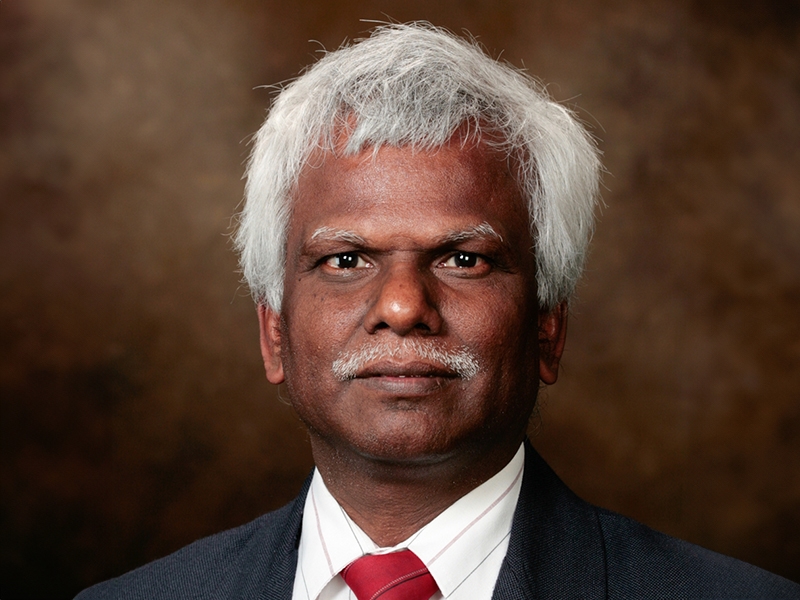Panneer Selvam, a university professor in the College of Engineering's Civil Engineering Department, has joined a nationwide, multi-university research collaboration working to design a cutting-edge national testing facility capable of simulating damaging winds, with the goal of improving the resilience of buildings and infrastructure across the United States.
In the U.S., tornadoes cause an average of approximately $1.4 billion in damages each year, with immeasurable human and psychological costs. The ongoing research seeks to significantly reduce these life, property and infrastructure costs.

Damage to and around Academy Sports in Joplin, Missouri, on May 22, 2011, after a tornado hit the city.
Photo by Roger Nomer, courtesy Joplin Globe
The project is known as NEWRITE, an acronym for National Testing Facility for Enhancing Wind Resiliency of Infrastructure in Tornado-Downburst-Gust Front Events. It recently secured a $14 million grant from the National Science Foundation.
The venture's primary focus is to conceptualize a university-based facility capable of replicating conditions found in extreme wind events. The facility would enable physical testing of these effects on civil infrastructure through mid- to full-scale models of residential, commercial and institutional structures against wind speeds exceeding 230 mph. In addition, researchers plan to develop a digital twin of the NEWRITE simulators to aid in the facility's design.

Damage along Rangeline Road in Joplin, Missouri, May 22, 2011
Photo by Roger Nomer, courtesy Joplin Globe
Selvam will collaborate with researchers hailing from institutions nationwide, including Iowa State University, Clemson University, Missouri University of Science and Technology, Northeastern University, Texas Tech University, University of Florida, University of Washington and the University of Wisconsin. Selvam will help the computer modeling team in the development of the NEWRITE digital twin.
Selvam has researched the effects of tornadic forces on building construction for more than 35 years. He recently published a textbook that is an integral part of his course curriculum. Computational Fluid Dynamics for Wind Engineering provides comprehensive understanding of how computational fluid dynamics can explain wind load on structures, along with helpful examples of practical applications.

Damage along Rangeline Road, Joplin, Missouri, May 22, 2011
Photo by Roger Nomer, courtesy Joplin Globe
The National Science Foundation said the NEWRITE research is essential, stating, "Future damage to infrastructure will only increase with growing urbanization and increased intensification and frequency of such windstorms due to changing climate."
The design project constitutes a vital component of the National Science Foundation-supported Natural Hazards Engineering Research Infrastructure (NHERI) and plays a substantial role in the NSF's National Windstorm Impact Reduction Program.
The NEWRITE project's objective is to deliver final design documents for the construction of the full-scale NEWRITE facility. For additional information about this groundbreaking project, please visit the NSF website.
Selvam holds the James T. Womble Endowed Professorship in Computational Mechanics and Nanotechnology Modelling in the Department of Civil Engineering. His research interests include structural analysis; structural loading; finite element methods in civil engineering; numerical modelling of linear, nonlinear and dynamic behaviors in structural mechanics; and fluid dynamics and acoustics using boundary element, finite element and finite difference methods. He is also interested in computer modeling in wind engineering, understanding turbulent flow, thermal energy storage, thermal management for electronics and fluid-structure interaction problems.
About the Department of Civil Engineering: The Department of Civil Engineering at the University of Arkansas was established in 1897 when the College of Engineering made clear the separation of civil and mechanical engineering degrees. The department maintains an accreditation from the Accreditation Board for Engineering and Technology (ABET) and ranks among the Best Civil Engineering Programs 2023 by U.S. News & World Report. The department earned more than $7 million in research awards for the fiscal year 2022, while our graduates earn a starting salary averaging just over $70,000. To learn more about the Department of Civil Engineering, please visit our website.
Topics
Contacts
R. Panneer Selvam, university professor
Department of Civil Engineering
479-575-5356,
Mike Emery, media specialist
Department of Civil Engineering
479-575-4954,
